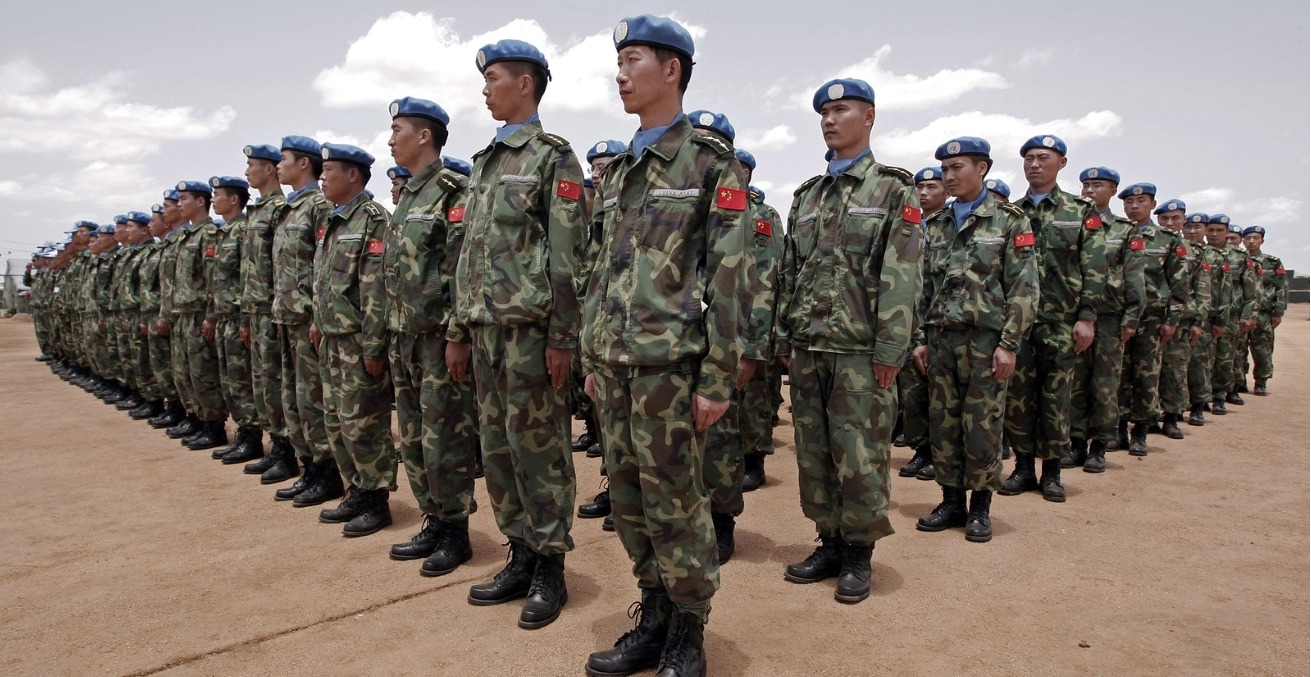Impact of China’s Decision-Making Processes on International Cooperation: Cases of Peacekeeping and Humanitarian Assistance/Disaster Relief

The nature of China’s decision-making processes has international policy implications. The more holistic China’s decision-making process, the deeper the international cooperation.
The Asia-Pacific region hosts myriad trans-border activities highly vulnerable to natural disasters, compounded by conflicts or socio-political uncertainty, as highlighted by ethnic conflict in Myanmar and the Philippines. China’s economic well-being depends largely on an increasing number of Chinese companies and citizens working outside of China – many of which are in the Asia-Pacific region – encouraged by the “Go Abroad” strategy in the 2000s and the Belt and Road Initiative (BRI) since 2013.
Such problems as conflict and disaster can adversely affect the economic benefit of Chinese companies, the lives of Chinese citizens, and the maintenance of national assets overseas.
These problems are exacerbated by China’s lack of trust among countries in the region. Such issues as the Taiwan problem, China’s military expansion in the South China Sea, and so-called debt traps, lead to the region’s concern about the nature of China’s rise. In these circumstances, it is imperative for China to cooperate with countries in the region to tackle together non-traditional security issues such as disasters and conflict, thereby gaining the trust needed to create a friendly international environment. UN peacekeeping and HADR are both a means to address these problems. Both help China address conflict and disaster inside and outside the region, and to display international responsibility by addressing non-traditional security threats.
UN peacekeeping and HADR seem to offer “low hanging fruit” for international cooperation, particularly when thinking about how difficult it is to cooperate over international issues involving China’s “core interests,” such as territorial integrity and nationalism. However, the ways in which China undertakes UN peacekeeping and HADR cooperation differ. China’s peacekeeping cooperation with the UN, ASEAN and other key states in the region, such as Australia, Japan and Korea, encompasses not only cooperation for technical and capacity development but also cooperation for policy harmonisation, while China’s HADR cooperation is limited to technical and capacity development. So, why the difference?
Behaviourists explain that state cooperation is driven by changes in the balance of power among countries. But the fact that China differentiates the ways in which it cooperates with other states depending on the field of cooperation, shows that external factors are insufficient to explain why one state cooperates in one field and not in another. Instead, internal factors are also a focus. More specifically, the difference in the level of cooperation corresponds to the level of holisticity/fragmentation of China’s decision-making process.
A holistic decision-making process helps China foster deeper international cooperation, while a fragmented one hinders the deeper development of cooperation. There is no intention to necessarily deny the behaviourist explanation, but when explaining why China cooperates in one field and not in others in the context of the same international power structure, internal factors, particularly the holisticity/fragmentation spectrum of the decision-making process, can offer a key to explaining the nature of China’s international cooperation.
We can take three approaches to this topic.
The first points out the types of foreign policy problems that the Chinese government has tried to address by engaging in UN peacekeeping and HADR operations. Since the end of the Cold War, China has steadily increased its financial and personnel contribution to UN peacekeeping and HADR. Since China’s financial contribution to UN peacekeeping surpassed that of Japan in 2016, it has been second only to that of the United States (respectively contributing 27.89 percent and 15.21 percent of the entire UN peacekeeping budget since 2016). China’s peacekeeping troop contribution surpassed that of any of the other “permanent five” members of the UN Security Council in March 2004.
Many have pointed to a trust deficit problem. The essence of this problem is related to the so-called China threat theory. As China rises, the region and the world are concerned about whether or not the rise is of a benign nature. Additionally, China’s increased contribution to peacekeeping and HADR is a to fill the void of global leadership consistent with the size and international standing of the country. And what’s more, China’s increase in contribution was again particularly important in the 2010s, as it derives from the complexity of the concept of security, which necessitates “strengthening and revitalizing the armed forces.”
Secondly, it is helpful to view the world through Margaret Hermann’s “decision units approach” to investigate the extent to which China’s decision-making processes are holistic or fragmented. While the leading China studies suggest that foreign policy decision-making is taking place in a fragmented way, there has not been any theoretical work on this. The decision units approach offers a tool to help describe in some useful detail the holisticity-fragmentation spectrum.
This approach to foreign policy analysis is a framework based on an agency-based perspective, which can help explain how and why a state arrives at a certain policy. This framework includes investigation of the level of holisticity/fragmentation in decision-making. One of the key problems, however, is that one suffers from a serious lack of data on the interaction among decision units in China, because of the secretive nature of the policy apparatus.
When facing a dearth of sources, the comparison of media reports might help one analyse the differences in the opinions of the Ministry of Foreign Affairs and of the Chinese military – the former being more supportive of UN peacekeeping, the latter being more sceptical.
The majority of World Knowledge Publications (an Indian-based bi-monthly magazine) discuss critical issues associated with the implementation of political solutions to the Cambodian problem, and mention the necessity of UN or international monitoring of Cambodia. In contrast, the PLA Daily’s equivalent reporting was extremely limited. This shows that after the dispatch any difference in opinion either withered away or was minimised, and the PLA became supportive of the United Nations Transitional Authority in Cambodia, or more specifically, Chinese peacekeepers in Cambodia.
Ultimately, the reason China’s international cooperation on peacekeeping and HADR differs corresponds to the level of holisticity/fragmentation in China’s decision-making process. The process outcome of HADR itself is fragmented, while that of peacekeeping is more holistic. China does not have a holistic approach to non-traditional security issues.
This conclusion offers one pathway to identify why China cooperates in one field but not in others. While policy objectives largely direct the extent to which China commits itself to international cooperation, they do not necessarily account for China’s cooperation record, as shown in the differences between cooperation in UN peacekeeping and in HADR operations. When the same set of policy objectives is not always shared by all members of policy community, processes rather than preferences shape policy behaviour.
The decision units approach also offers some policy implications. China’s international cooperation in HADR can become more in-depth by encompassing policy-level discussion, if China itself can develop more holistic process outcomes. This can be done by having a leadership moderately sensitive to contextual information on the determination that China’s global and multilateral assistance is needed to address a wide range of humanitarian crises (rather than bilateral assistance). Holistic process outcomes can be also achieved by establishing norms and rules relating to HADR for multiple actors, guidelines establishing when and how China cooperates.
Dr Miwa Hirono is Associate Professor at the College of International Relations at Ritsumeikan University. She has taught at the Australian National University, where she was awarded a PhD in International Relations, the University of Cambridge, and the University of Canterbury, New Zealand. Her current research explores the notion of international responsibility of great powers by focusing on China’s peacebuilding and humanitarian assistance.
This is an extract from an article of the same name originally published in the Australian Journal of International Affairs and can be viewed here.





